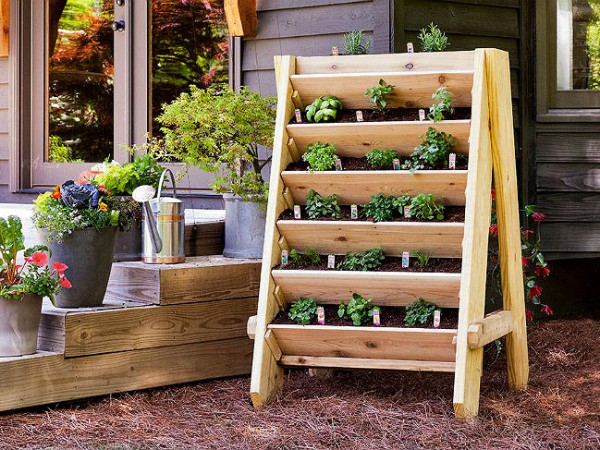16
Dec

What’s a meal without herbs, right? They add a whole new dimension to the food that screams both freshness and deliciousness. Most of us have herbs and spices in our kitchen cabinets, the fresh smell of which we absolutely adore, but have you ever tried producing your own herbs? It’s as magical as consuming them, I promise you. The outstanding variety of herbs will not only enhance the flavor of so many dishes, it will bring peace and beauty in your garden as well. If your garden offers enough sunlight and good soil conditions and you give them your full love and support, your magical herbs will be up and running in no time. The coolest thing about herbs is that they are planter-friendly, so you can even make a little “herb corner” in your own home kitchen.
Before you get started, don’t forget about all the nursery supplies you’re going to need to start gardening. These supplies will make your day at the garden more comfortable and enjoyable and will definitely help your herbs grow into healthy and delicious leaves that will be perfect to help you show off your cooking skills to your friends. Now, if you’re ready for planting, write down a few important things: soil, containers, location, fertilizer. All of this is equally important when it comes to growing herbs in your home garden.
Most herbs won’t grow in dry or overly wet soils, that’s why if you think your garden is too dry or too wet you should turn to planters. The planters that have a bottom drainage hole are perfect for all the types of herbs. Once you’ve decided where you want to grow them, it’s time to turn to those nursery supplies shops again and look for a herb potting mix. Most small annual herbs will do very well in planters the diameter of which is around 8 inches and larger herbs such as rosemary may require larger planters.
Aside from soil, sun and temperature are also essential factors for growing healthy herbs. Most herbs can grow without a problem inside on a sunny windowsill and they prefer an afternoon shade every now and then. If you decide to plant them in your garden, make sure they are not directly exposed to daylight and heat because it will shorten the productive life of cool seasons herbs like cilantro for example. When it comes to temperature, cilantro needs cool spring and fall weather and basil, on the other hand prefers, sunny and hot summer days. It would be ideal if you keep the planters indoors until the outdoor temperature reaches the optimum range for the herb variety.
When it comes to watering, planter herbs will require more because they tend to dry out faster. However, when the weather is hot and dry, your garden will need more water than regularly. Everything depends on the soil conditions. You should check your soil daily for moisture and if you feel it’s dry, you should water your plants, if you think it’s wet enough don’t. Over-watering can be as bad for your herbs as not watering them at all, so try to understand the soil and its moisture.
One of the greatest things about planting herbs is that they require minimal fertilization. A shot or two of fertilizers during the growing season will be enough to keep them happy, healthy and flavor-y. What they do need is pruning. Pruning will stop your herbs from seeding and it will help them produce much longer. Make sure you’re pruning your herbs at least once a month because it will also prevent them from outgrowing their planters.
If you follow these simple yet crucial steps, your magical herb garden will spout in your backyard or on your windowsill without a single problem. The most important thing is to listen to your herbs’ needs and once they’re all grown and green, use them for the dinner you’re going to impress all your friends and family with.